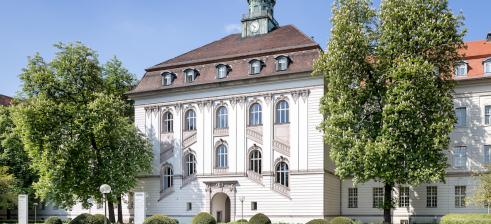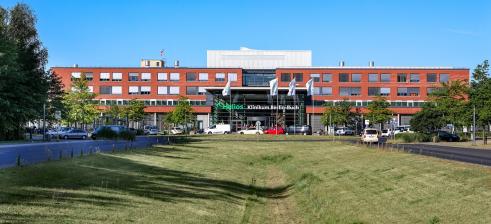Cardiac Surgery in Berlin

Cardiac surgery involves surgical treatment of congenital and acquired diseases and injuries of the heart and surrounding vessels. Unlike cardiologists, cardiac surgeons can perform open heart surgery using a cardiopulmonary bypass. 130,000 cardiac operations were performed in 2015 at Germany’s 80 or so cardiac surgery clinics. The most common procedures are coronary artery bypass grafts (CABG) and cardiac valve surgery. Heart transplants are also performed by cardiac surgeons.
To treat obstructed coronary vessels, cardiac surgeons perform bypass surgery, which involves using for example an artery taken from elsewhere in the body to bridge the obstructed vessels. In straightforward cases, an obstructed coronary vessel can also be treated by the cardiologist, who will insert stents through the blood vessels into the previously expanded coronary vessel. This example shows how important an interdisciplinary team is to ensure that the correct cardiac treatment is provided – with cardiac surgeons working closely together with cardiologists and anaesthetists.
The boundaries between the different disciplines are increasingly blurred, as minimally invasive methods are already being used increasingly in cardiac surgery. Transcatheter aortic valve implantation (TAVI) is frequently performed to treat heart valve calcification: rather than performing open-heart surgery, an artificial aortic valve is introduced through the blood vessels and shortly before the heart. Thanks to continuous advances in cardiac surgery, the survival rate of patients in Germany is approx. 97 percent nowadays.
Hospitals and doctors' surgeries
3 results
Comprehensive medical care




